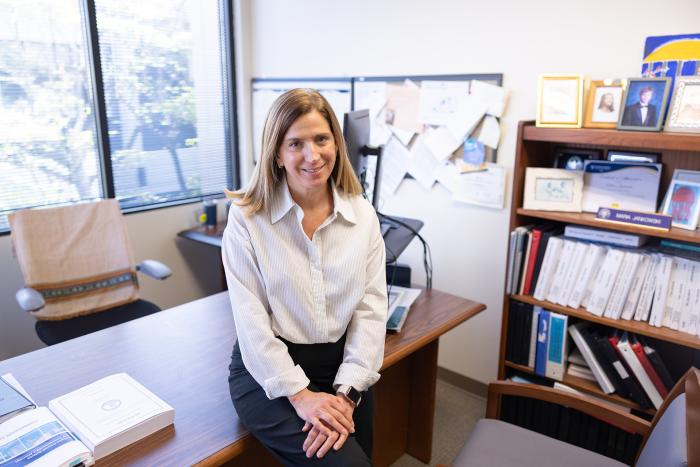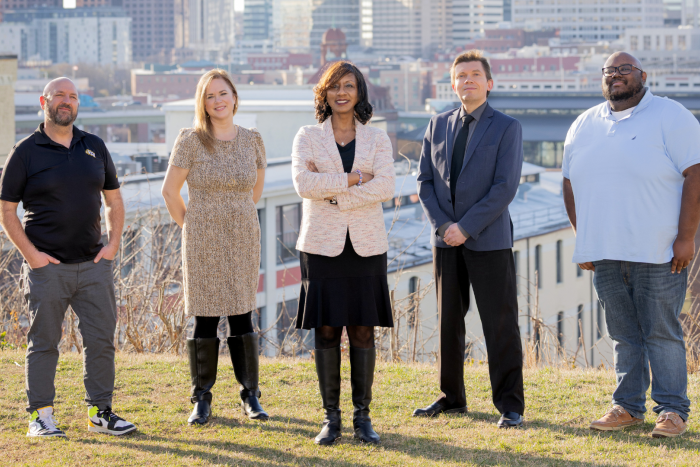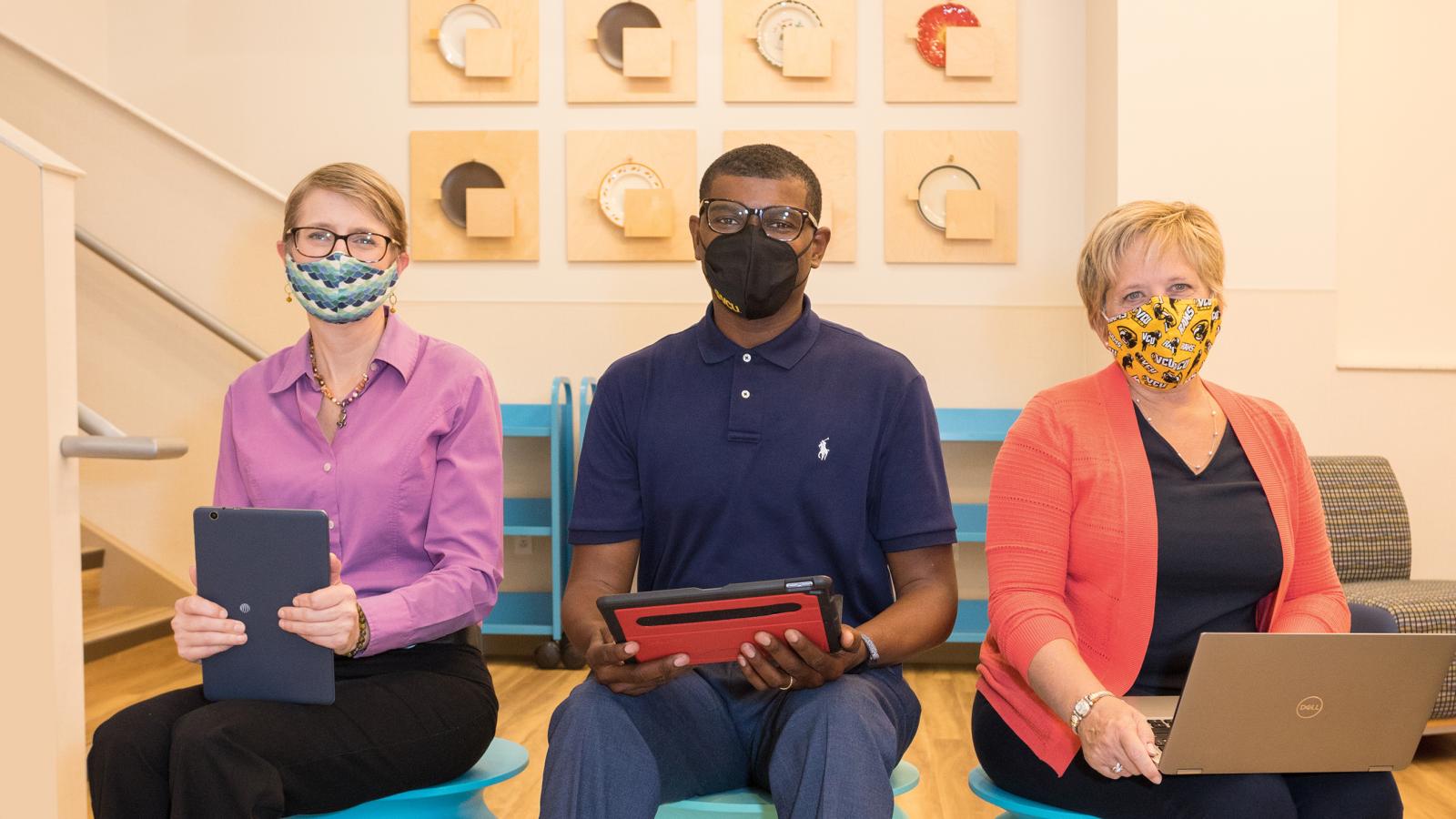
The Richmond Health and Wellness Program combines the expertise of various healthcare fields to build a coordinated care model for participants. The partnership includes faculty like Jodi Winship, Ph.D., assistant professor of occupational therapy in the College of Health Professions; Elvin Price, Pharm.D., Ph.D., professor at the School of Pharmacy; and Pam Parsons, Ph.D., associate professor at the School of Nursing. Photos: Chris Ijams

The Richmond Health and Wellness Program had to adapt overnight to continue reaching low-income older adults in the community. Funding from the AARP Foundation and VCU Health’s COVID-19 Rapid Research Fund enabled them to purchase technology for residents that allows them to connect with program leaders.
Healthier Together
Toward a Healthier Virginia for All
This article is part of an ongoing series of stories highlighting VCU Health programs and initiatives aimed at addressing issues of access and equity in health care.

Social isolation can be dangerous. And this year, it has been the shared experience of people across the country as states issued stay-at-home orders to mitigate the spread of COVID-19.
Here in Richmond, a group of researchers has been partnering with low-income older adults with the goal of understanding how to build a better healthcare delivery model to meet their needs where they live. The spread of COVID-19 only underscored the value and importance of the Richmond Health and Wellness Program (RHWP). Research on loneliness and social isolation’s effects on health outcomes became a national conversation as lockdowns went into effect and researchers saw a sudden uptick in preventable deaths due to disruptions in access to routine and preventive care. While not researching the virus directly, the program’s efforts to address the secondary impacts of the pandemic on health outcomes received support from the VCU Health COVID-19 Rapid Research Fund. RHWP is a community-based learning lab for exploring both health disparities in older adults living in low-income housing and reimagining how care is provided.
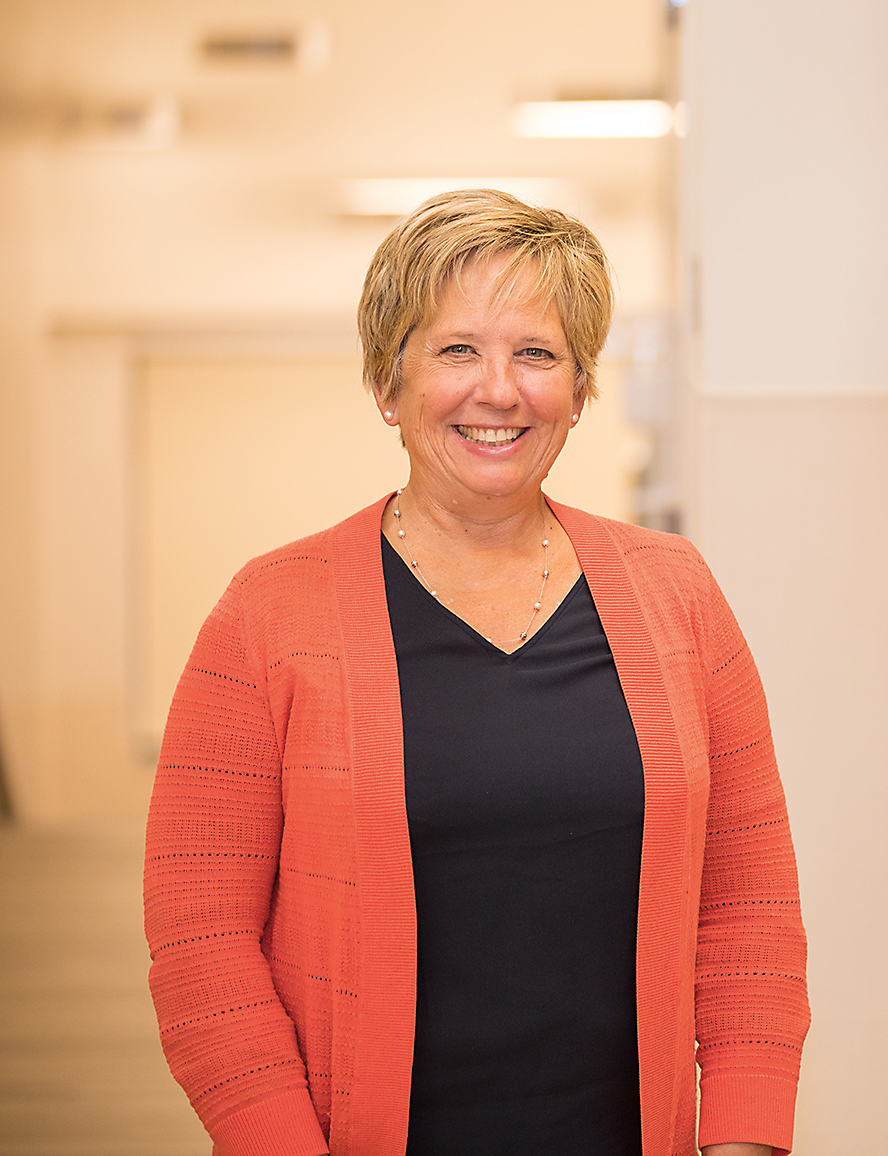
Since 2012, RHWP has brought together care partners across disciplines through collaborative care models that enhance the lives of individuals, decrease healthcare costs and educate future practitioners. Based at the VCU School of Nursing, the program is the idea of Pam Parsons, Ph.D., associate professor and associate dean of practice and community engagement at the school, who was recently named a fellow of the American Academy of Nursing. RHWP also received an important distinction as an Age Friendly Health System Practice. The designation is given by the Institute for Healthcare Improvement, a national organization encouraging improvement in health care delivery and outcomes.
Prior to the pandemic, the program operated weekly with either full- or half-day sessions at five housing locations. It also recently expanded to the new VCU Health Hub@25th, a freestanding wellness center developed to serve one of the most health disparate populations in the Richmond region. Participants work with students and faculty to develop wellness plans customized to the health conditions, social needs and resources of each individual. Social connectedness serves as a pathway to improved health and wellness, and the relationships built over time through the program have led to improved health outcomes.
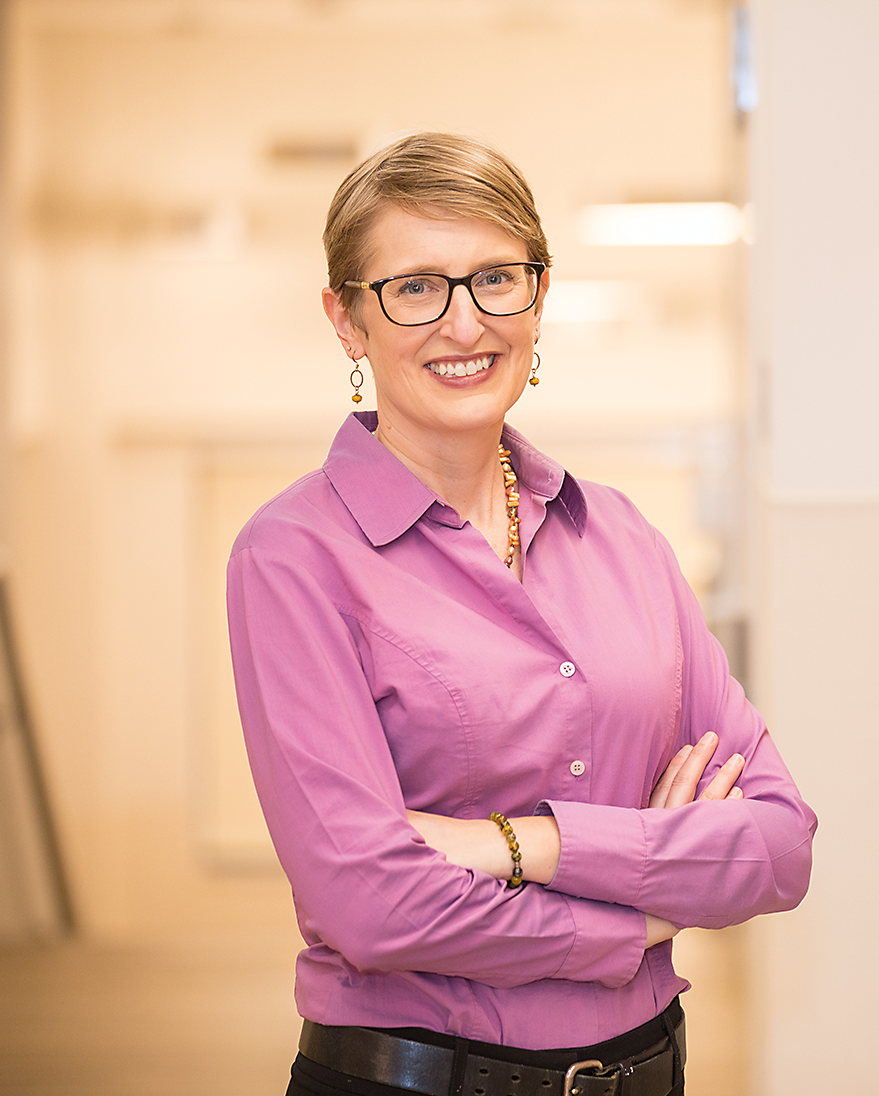
“Loneliness is such a huge factor, and it’s at the forefront of NIH to ask what factors related to social isolation are presently influencing health outcomes,” Dr. Parsons said. “We’re teaching the students what that means using evidence-based tools to assess loneliness and making strategies to connect people to services and help set goals to be more socially connected.”
The social connection provided by the program is one of the key elements of its success and what attracted the attention of the AARP Foundation. In January 2020, the foundation awarded a grant to the program to support more formally measuring the influence of social connection on health outcomes. That work became especially relevant in the era of COVID-19.
“A really big component of what we’re doing is fulfilling this social need,” said Jodi Winship, Ph.D., an assistant professor of occupational therapy at the VCU College of Health Professions. “For my dissertation, I’d interview program participants about their experiences working with a team of students. I thought I’d hear about how they appreciated student help with managing their medicines and things like that, but one of the biggest things I found in my dissertation research was how much they loved simply talking to the students, both hearing students’ stories and sharing their own.”
A Multidisciplinary and Interprofessional Approach
The partnerships RHWP has built are a key part of its success, and they start with the community participants. “We’re not researching the individuals,” Dr. Winship said. “In every way, this is a process in which they are as equally engaged in and directing as the faculty and students. We've established a community advisory board, and we're really trying to guide our research based on what the community wants and how we can help them and work together.”

Once community members identify a need, the program has partnered with an array of experts from multiple disciplines ranging from social work and occupational therapy to law and pharmacy. One such expert is Elvin Price, Pharm.D., Ph.D., Victor A. Yanchick Associate Professor and Director of the Geriatric Pharmacotherapy Program at the VCU School of Pharmacy. Dr. Price is also co-director of the Institute for Inclusion, Inquiry and Innovation (iCubed) Health and Wellness in Aging Core with Dr. Parsons. His expertise in pharmacogenetics has helped the older adults who are part of RHWP.
“Our work centers around making the best decisions possible with medications for people based on their needs and genetic profile,” Dr. Price said. “You may also see this called personalized medicine or precision medicine, but it's a way of being able to optimize medication based on an individual's specific needs and how their body reacts and processes available medicines.”
Dr. Price and his students are genotyping participants to evaluate them for the most commonly characterized drug-gene pairs. The goal is to avoid adverse drug reactions and educate participants on how to best manage their prescriptions based on their genotype.
COVID-19 temporarily halted work on this aspect of the program, but Dr. Price and his team resumed processing and isolating the DNA this fall and continue to receive positive feedback from residents who are interested in participating.
Disruption and Rapid Adaptation
Overnight, all the work that clinicians were doing with the program had to evolve. Most RHWP sites quickly restricted visitors and on-site programs to protect older adults, an especially vulnerable population, from the spread of COVID-19. The program had been acquiring devices that would allow greater communication between residents and program participants, but the suspension of in-person programs accelerated the need to deploy and work with technology in a community that often experiences barriers to access. Thankfully, some of the locations have recently invested in wireless internet connections that enable the program team to pilot the use of tablets and other personal technology devices.
Dr. Parsons and the team have been refining and understanding technology needs and how people could and would want to use technology if they are in a different living environment, income bracket or older. They hope this research will yield insights that will help improve delivery of care and social engagement to residents, but also equip students for their careers beyond the MCV Campus.
“The work we do over the next three years will add evidence to a growing understanding around models of care for older adults when national policymakers are looking at how to frame care for this health disparate population,” Dr. Parsons said.
More than anything, though, the research team has missed being with their community participants. This fall, they worked on reactivation plans to safely get teams back in the communities to resume work while continuing to adopt a hybrid approach to programs they are unable to hold in person.
If you would like to contribute to research associated with the VCU School of Nursing’s Richmond Health and Wellness Program, please contact Pamela Lowe, senior director of development for the School of Nursing, at 804-827-0020 or plowe@vcu.edu.

